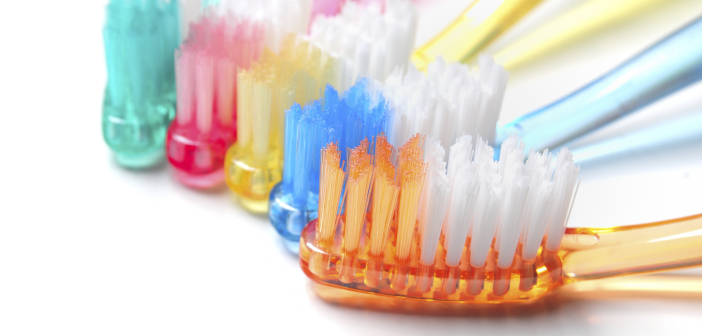Everyone has been told throughout their lives that it is important to keep their mouths clean, yet few people follow that advice. This discrepancy between advice and action may be the result of the limited discussion about the side effects of poor dental hygiene. According to the CDC, a proper dental care routine not only fights bad breath and cavities, but it reduces the risk of multiple diseases and health issues.
An effective dental care routine is simple and quick but requires consistency. The basic daily routine involves brushing teeth twice a day then flossing and rinsing with a mouthwash after each brushing. Some people brush a third time during the day, usually after lunch, and regularly chew sugar-free gum to stimulate saliva, which naturally protects teeth. Another important part of excellent dental care is regular dentist visits, which help with early detection and treatment of potential problems.
Brushing teeth
The single most effective way to clean the mouth is to regularly brush. A clean, soft-bristled toothbrush and fluoride toothpaste are the best tools. Brushing removes plaque from the surface of the teeth and prevents cavities. Cavities are common and usually quickly and easily treated by a dentist. This is perhaps one reason so few people take brushing seriously. However, cavities can quickly spread and cause great pain if not properly treated.
According to Glow Dental Spa, “It is important to note that brushing prevents more than just cavities. Brushing the tongue and inner cheeks fights bad breath and gingivitis. It is also vitally important to brush well along the areas where the teeth meet the gums. This will help avert the development of gum disease.”
Flossing
Although brushing helps deter gum disease, the most effective weapon in this particular battle is regular flossing. Gum disease is painful and can cause the loss of multiple teeth. It makes eating and drinking a particularly painful process. The bacteria that cause gum disease enter along the gum-line. It is impossible for a toothbrush to clean all the areas where the teeth and gums meet, but floss can reach those difficult places. Flossing should be done around every tooth to dislodge as much bacteria as possible.
Rinsing with mouthwash
Brushing and flossing focus mostly on the teeth and gums, but that is only a fraction of the mouth. Mouthwash can clean every section. Brushing and flossing dislodge bacteria from surfaces, but most of it remains inside the mouth. Rinsing with mouthwash is done after brushing and flossing to create an efficient way to eject all the bacteria from the mouth.
Other health issues
Dental health affects more than just the mouth. Studies have found that poor dental health has an adverse effect on diabetes and heart disease and increases the likelihood of stroke. Besides these terrible health risks, there are also superficial motivators to care for the mouth. Bad breath and discolored teeth are embarrassing features. Additionally, dental pain makes it difficult to enjoy food. There are many benefits of good teeth.
What is in the mouth enters the stomach and affects the entire body. This is why a proper dental care routine is so important. Excellent dental hygiene increases overall health, allowing a person to focus on other aspects of their lives.
More information about dental health can be found online at: Centers for Disease Control and Prevention, state government websites, Mayo Clinic and Wikipedia




